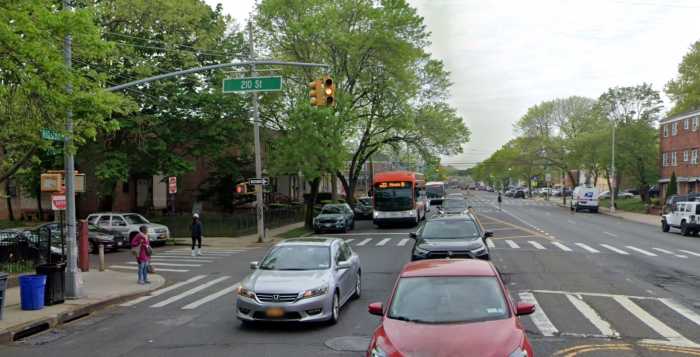By Alexander Dworkowitz
The board of trustees of the City University of New York approved stricter admission and academic standards for the institution’s law school in Flushing this week.
CUNY’s chancellor, Matthew Goldstein, had made a request for a tougher admission policy after half of the school’s graduating students failed the state bar exam in 2001, the worst record of any school in the state. CUNY officially approved Goldstein’s proposal at its Monday meeting.
Under the policy to go into effect in September, only 10 students who score 145 or below on the LSAT exam will be admitted to the school, said Dorothy Zellner, the law school’s director of institutional advancement and publications. Under the previous policy, 25 percent admitted to the school, or about 40 students per class, scored below 145.
The LSAT test scores range from a low of 120 to 180, with the average at 150.
Academic standards were also raised. Under the new plan, law students must have at least a 2.3 grade-point average per semester, as opposed to a cumulative 2.0 average under the old policy.
CUNY’s law school, which has 433 students, prides itself on diversity. The school’s charter mandates that its student body reflect the ethnicity of the city, and some were concerned that the new standards could change its makeup. The school opened 20 years ago.
CUNY specifically seeks out students interested in public-interest law. Of those enrolled, 65 percent are women and 45 percent are from minority groups, according to the school’s Web site. U.S. News and World Report ranked CUNY as the most diverse law school in the country last year.
The school’s tuition, $2,850 per semester for New York state residents, enables students who cannot afford other law schools to attend.
In the past, CUNY has allowed students with relatively low LSAT scores to matriculate as part of its commitment to a diverse student body.
“There are many with low LSAT scores who not only pass the bar but become wonderful lawyers,” Zellner said.
Zellner noted 74 percent of the students passed the bar exam in 2000 and called the 2001 scores an “anomaly.”
Administrators at the institution will keep a close eye on the school’s ethnic makeup once the change goes into effect.
“If some of these measures impact on diversity, we will be concerned,” Zellner said.
Students at CUNY had a mixed reaction to the new policy.
“I don’t think the LSAT is indicative of people’s ability to be good lawyers, good public-interest lawyers,” said Kavita Pawria, a third-year student from Astoria.
Pawria said the scores of one particular class should not affect the school’s future.
“This is a great place because it allows students who don’t necessarily meet traditional standards,” she said. “And I think that’s a good thing.”
Others disagreed.
“I think it’s a good idea,” said Rocco Napoli, a first year-student from Brooklyn. “By making the standards tougher to get in, hopefully we’ll attract better students.”
Reach reporter Alexander Dworkowitz by e-mail at Timesledger@aol.com or call 718 229-0300 Ext. 141.


































